In a kitchen or bathroom, a porcelain sink can bridge the gap between more traditional and contemporary design tastes. Beyond their sleek yet charming aesthetic appeal, these hard wearing sinks are made to last in the face of everyday use in an active family home. Even so, some messes (and left-behind evidence of them) are a given factor in the course of daily life. In turn, it’s helpful to know how to clean a stained porcelain sink as needed. Let’s walk through some of the top care strategies that will yield the best results, all approved by our highly knowledgeable surface specialists.
How to Clean a Stained Porcelain Sink
So, you’ve noticed that your porcelain sink is looking dull or discolored, in certain areas or throughout. Not to worry — it’s very easy to restore the sink’s gleaming, even appearance using the following techniques for how to clean a stained porcelain sink:
- A soft cloth or sponge moistened with water and a few drops of dish soap will typically work well to pick up any stuck-on particles. Hydrogen peroxide or diluted white vinegar can also be enlisted for tackling odors and stains, leaving the sink smelling and looking fresh. Don’t forget to rinse the sink out well with water and wipe it dry with a clean towel afterwards to avoid streaks.
- For porcelain sinks in both the kitchen and bathroom, a magic eraser is a great tool to have on hand. These small but mighty sponges can typically lift away food residue, makeup splatters and more with minimal effort.
- For heavier discoloration on a white porcelain sink, you may consider scrubbing softly with a bit of bleach to bring the surface back to its pristine appearance.
Naval jelly is another handy product made specifically for removing rust, in case you encounter it. Just be sure to follow the safety instructions, rinse thoroughly and always avoid mixing cleaning products.
Porcelain Sink Stain Prevention
As with many things in life, being proactive in your porcelain sink care routine is a surefire way to avoid extra work. Wondering how to prevent your porcelain sink from ever getting stained in the first place? Here are a few effective tips and tricks to implement in your daily routine:
- Try to get in the habit of wiping up messes, crumbs and spills as promptly as possible with a soft, damp sponge or rag, and you’ll save yourself from having to handle sticky situations like dried-on grime later on.
- Consider using a drying rack rather than leaving dishes in the kitchen sink, as they may leave marks if they make contact with the sink and sit for too long.
Although porcelain is a durable material that bears impressive levels of scratch and heat resistance, it’s still a wise idea to use a grate to protect the bottom of the sink against marks and scratches from silverware and dishware. Grates are available in a variety of shapes and sizes to accommodate different porcelain sink dimensions, and they can also help to prevent chips from dishware being dropped into a porcelain sink.
Collaborate with Cosmos to Find Your Dream Low-Maintenance Sink
Now that you are equipped with these straightforward methods for how to clean a stained porcelain sink, you may be eager to compare options in pursuit of the best match for your kitchen or bathroom. Cosmos SurfacesTM brings you a range of choices, from our Orion porcelain farm sink — in white — to the St. Clair oval sink and Nekoda rectangular sink, both available in white and biscuit.
If porcelain for some reason doesn’t align with your preferences, we also have other sink styles available, including top-quality stainless steel and composite sinks that both offer their own respective benefits.
For a tour of all the options, visit our website and scroll through our online gallery. Or, come see us and allow our friendly staff to guide you to your perfect sink at one of our showrooms across the country. You can also get in touch via our contact form, in case you have any questions about how to clean a stained porcelain sink, other general maintenance inquiries or which sink variety is the best pick given your project specifications.












